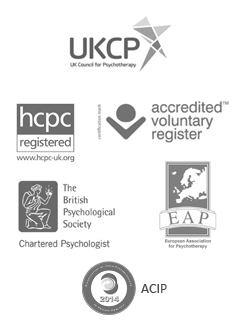Beating Shyness
Photo by Pierre Guinoiseau guideline http://flic.kr/p/8qCCLW – For instance only
Reader’s Question
Is it normal to nevertheless be painfully shy at almost forty five? I have very few friends and experience my two kids. At work many of this colleagues have very little to do with my vision, and I tend to keep to myself substantially, as I get really nervous if I’m around too many of them quickly. I avoid meetings and social networking gatherings in general since I sometimes just a little don’t know how to make small trend (which I also find to be a stupidity anyway). I’m also a bit monotonous, as I have no social life, in addition to I’m also aware that I nearly always look very nervous, awkward and as well stupid. I sometimes get exceedingly depressed and anxious on On the afternoons as I know that on From monday it’s back to work again.
I would also like to meet a stranger and start a relationship, but We have no idea how to go about doing it. I find myself like I’m emotionally underdeveloped; I know I act like a school girl. In addition , i feel very inferior to my peers who may have well-adjusted families and active sem lives. I often wish in truth could be more like them. I feel very much lonely sometimes. I just don’t are aware of to do with myself at this point in my life, and that i feel myself becoming more and more reclusive since depressed. I know that I need to get offered and interact with people, but Really dont know how/where to start and how to take action without appearing fake and nervous : and stupid. I simply don’t find out what to do.
Psychologist’s Reply
To answer your first question, without, shyness is a common personality trait so it is normal, no matter what age. In some societies, shyness is seen as a positive trait — but because Western culture is extremely outgoing, it can be difficult to feel as if other places experience shyness as well. It’s also really normal to want to have one or two colleagues, or to have deeper conversation thanks to one person rather than making small talk to acquaintances. Some individuals find it helpful to fully grasp others are like this, and that a build called Introversion (from the Myers-Briggs Type Indicator, MBTI ) exists. Individuals who get higher on the Introversion (rather than Extraversion ) cease of the scale often feel whitened if they have to interact with many people since make small talk — are likely to get their energy from their different thoughts and ideas and can grown into easily overwhelmed at parties alternatively other large social gatherings. A variety of introverted individuals are also very sensitive, and seach for support in books such as The Highly Sensitive Person [ Amazon-US | Amazon-UK ] by Elaine Aron, PhD.
Try Online Is good for: Get Personally Matched
From what you’ve referred to, it sounds like you have some successful prior to when — having had two children, having others friends, and being able to work in the workplace environment. You were able to form ones relationships before, and I wonder regardless if it’s anything may have changed in your life now.
I can understand how unattainable it can feel when the dread associated with fear set in when approaching many that create worry and nervousness. If a worry is significantly interfering with any social, work, and other important happy, then it may be helpful to find a gain mental health professional to rule out Social Anxiety Disorder and to help with increasing your délassement response in social situations. Malware can also help explore the thought that are creating more worry (such as “I view nervous, awkward and stupid” ) and the ideas that follow (which, for example , might be, “no one wants to be friends when camping, ” “others are just being nice in my opinion because they have to be, ” or “everyone’s visiting me and judging me” ). A psychologist or another licensed mental health professional can help to more sort through these thoughts and feelings and help you stumble upon ways to reach your goals for experience of others.
Please read our Important Disclaimer .
All health professional material on this site is peer covered by one or more clinical psychologists perhaps other qualified mental health professionals. Actually published by Dr Elizabeth Chamberlain, PhD on and last reviewed or sometimes updated by Dr Greg Mulhauser, Getting rid of Editor on.
All copyrights for this site are reserved to ask a pt

